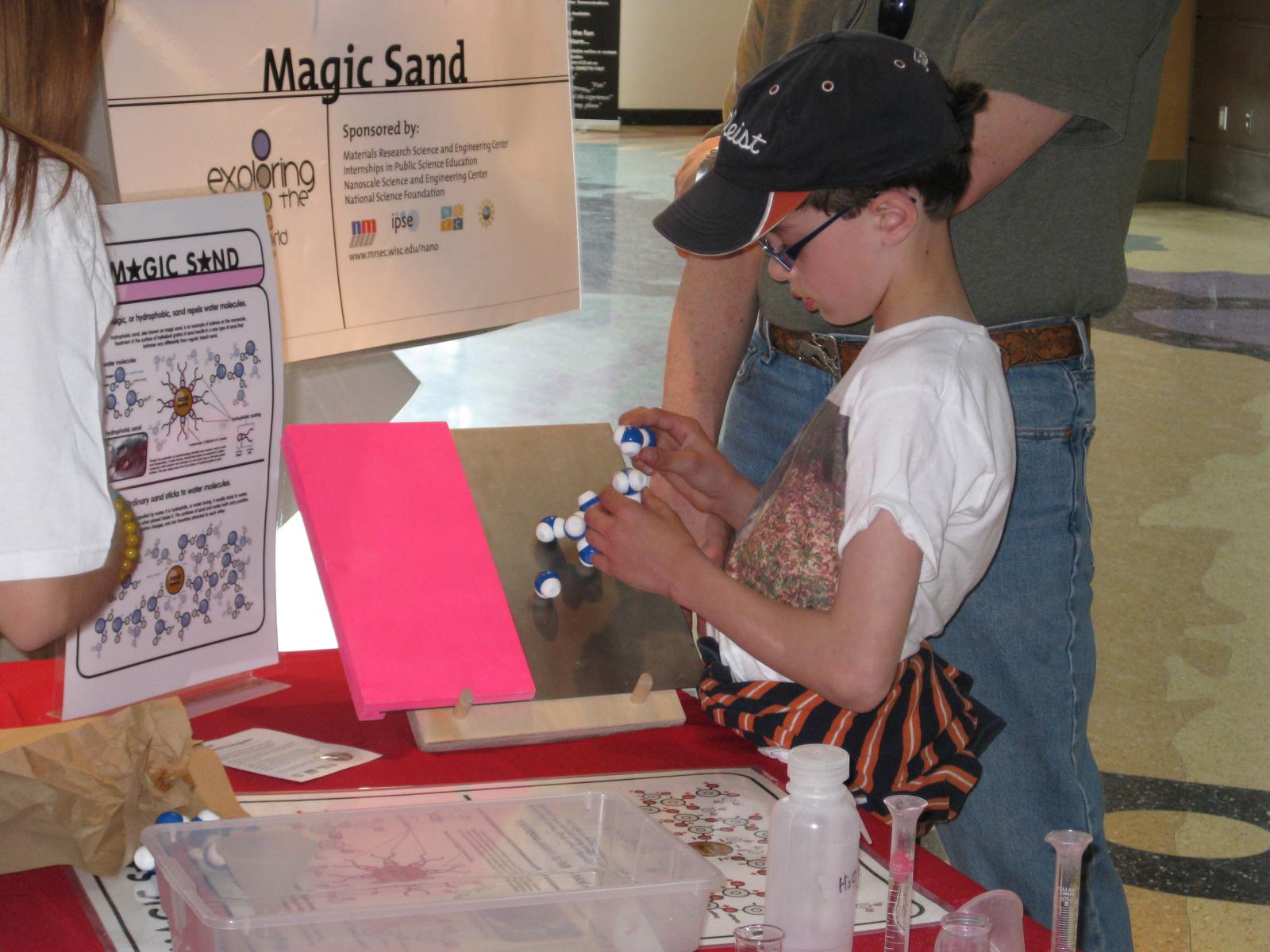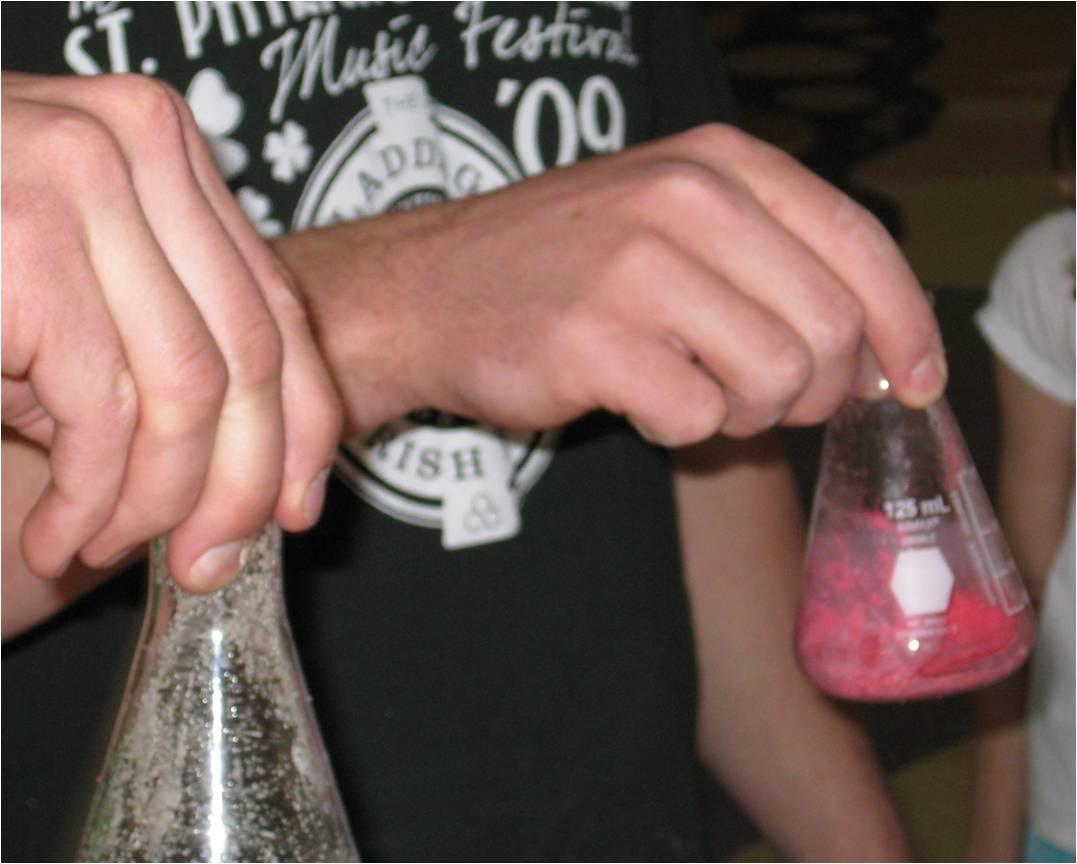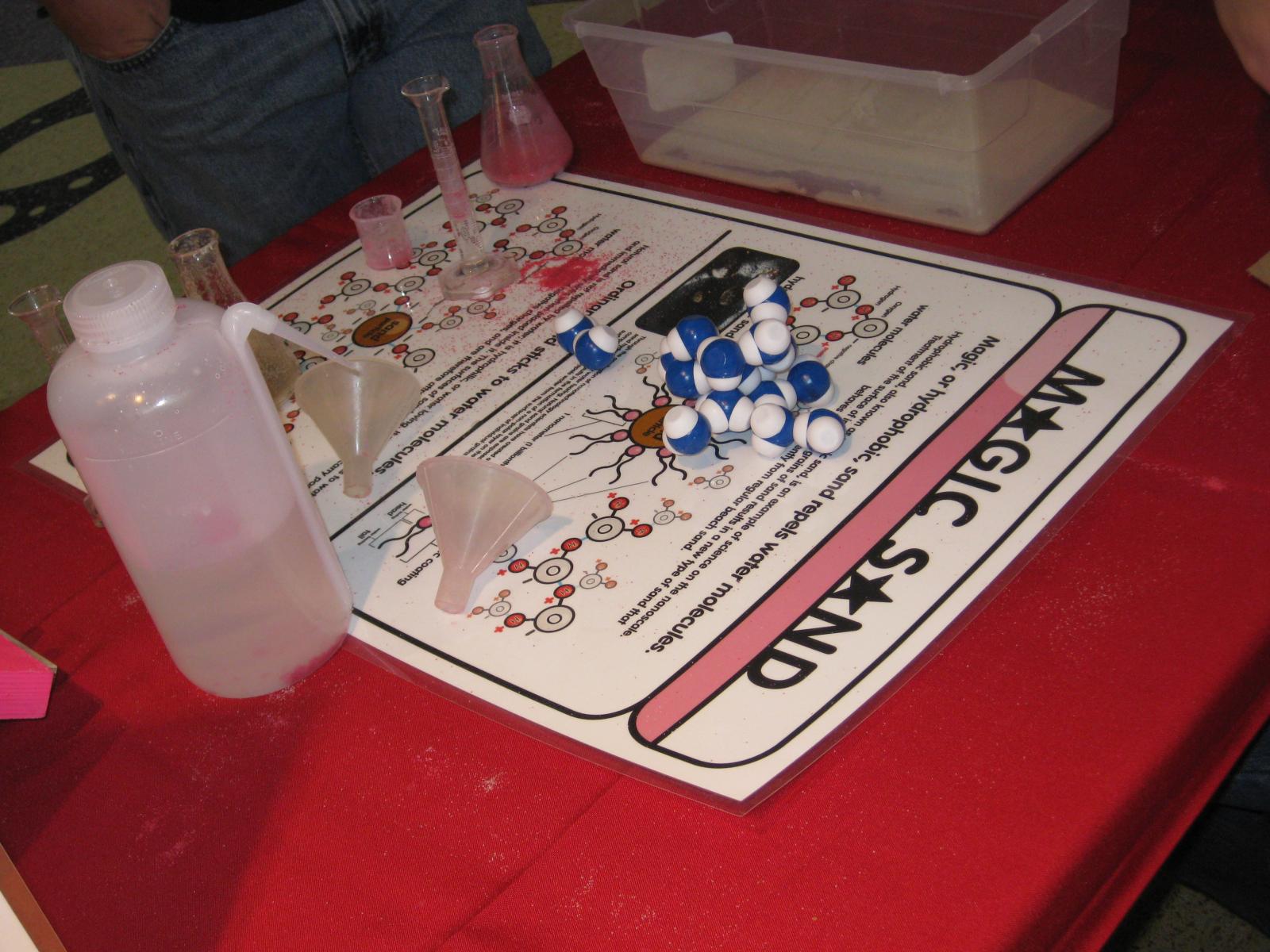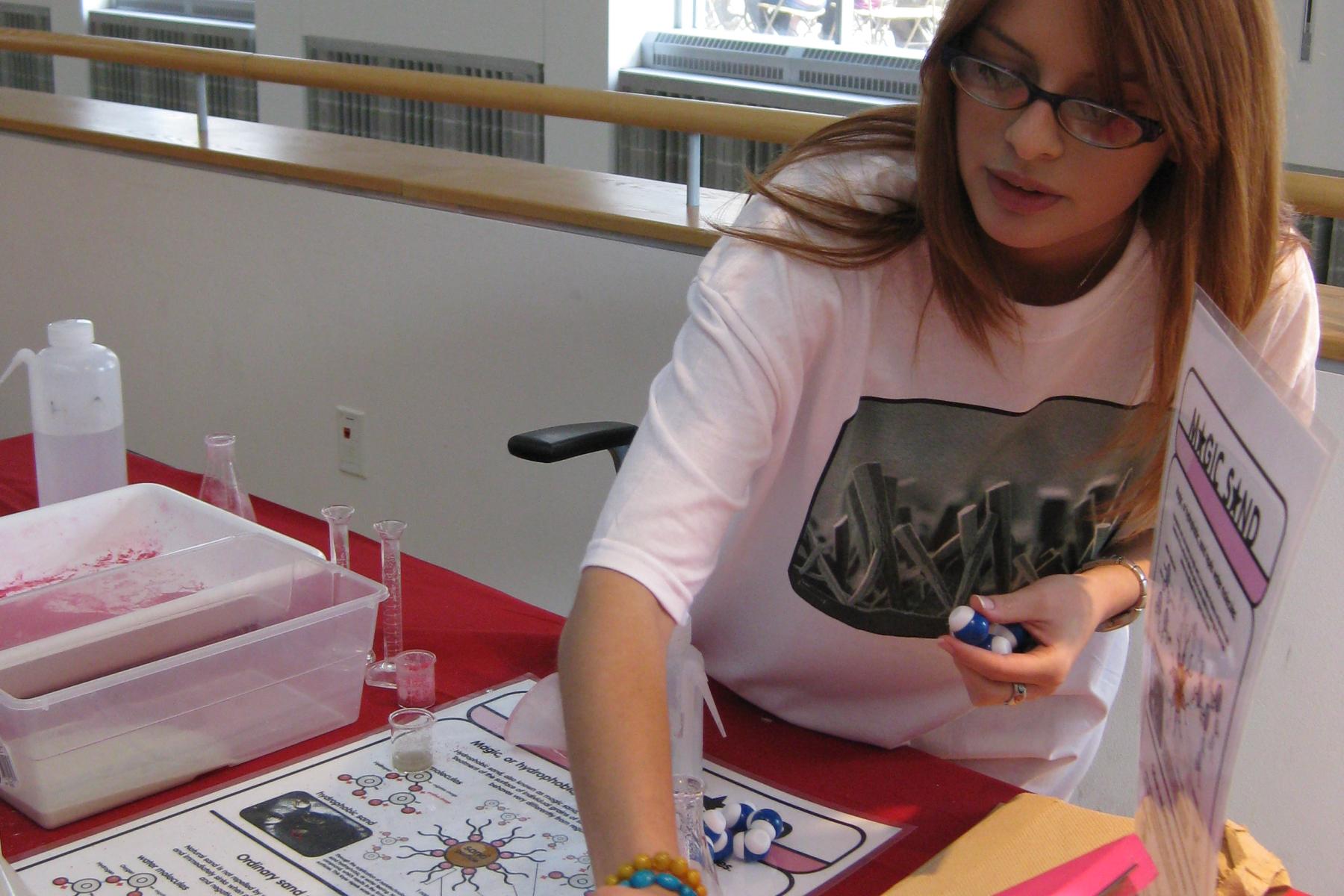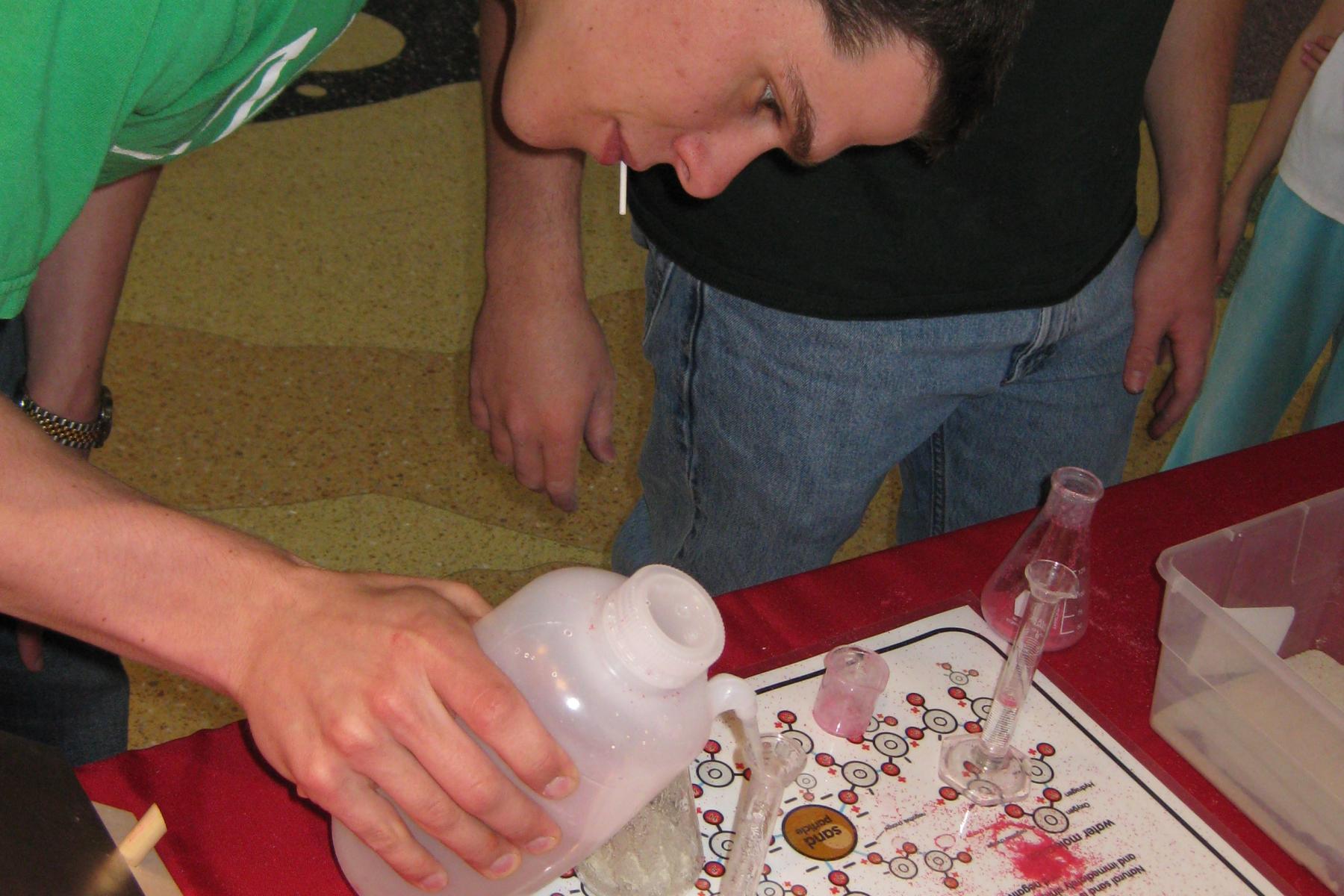DESCRIPTION
"Magic Sand" is a cart demo that demonstrates how changing nanoscale changes in a material can affect how that material behaves at the macroscale. Visitors learn that hydrophobic surfaces repel water and that "magic" sand repels water because of a nanoscale hydrophobic coating on the grains of sand. During the program, compare how magic sand and regular sand interact with water.
DESCRIPTION
"Magic Sand" is a cart demo that demonstrates how changing nanoscale changes in a material can affect how that material behaves at the macroscale. Visitors learn that hydrophobic surfaces repel water and that "magic" sand repels water because of a nanoscale hydrophobic coating on the grains of sand. During the program, compare how magic sand and regular sand interact with water.
TRAINING VIDEOS
OBJECTIVES
BIG IDEA
Nanoscale changes to the surface of sand make it repel water.
LEARNING GOALS
See how nanotechnology can change everyday materials
Learn that magic sand is"afraid" of water because it is covered with a nanoscale monolayer of oil-like molecules.
Many materials exhibit startling properties at the nanoscale.
NANO CONTENT MAP
Nanometer-sized things are very small, and often behave differently than larger things do.
Nanoscience, nanotechnology, and nanoengineering lead to new knowledge and innovations that weren't possible before.
Credits
University of Wisconsin-Madison Materials Research Science and Engineering Center
Developed for the NISE Network with funding from the National Science Foundation under Award Numbers 0532536 and 0940143. Any opinions, findings, and conclusions or recommendations expressed in this product are those of the authors and do not necessarily reflect the views of the Foundation.
Creative Commons Attribution Non-Commercial Share Alike 3.0 United States (CC BY-NC-SA 3.0 US).
View more details

NISE Network products are developed through an iterative collaborative process that includes scientific review, peer review, and visitor evaluation in accordance with an inclusive audiences approach. Products are designed to be easily edited and adapted for different audiences under a Creative Commons Attribution Non-Commercial Share Alike license. To learn more, visit our Development Process page.

